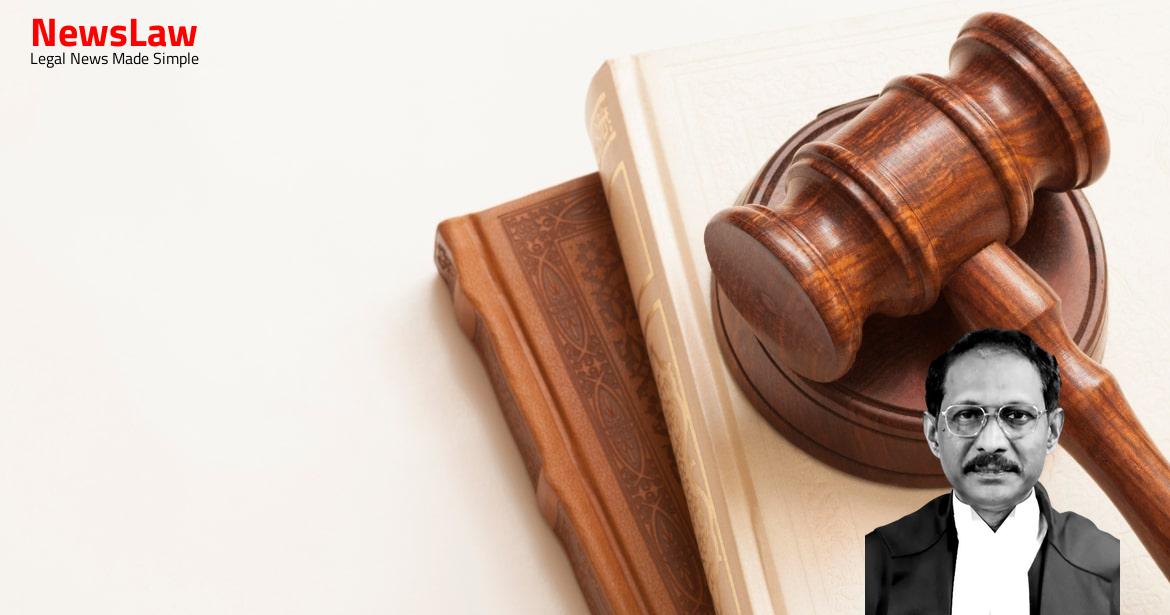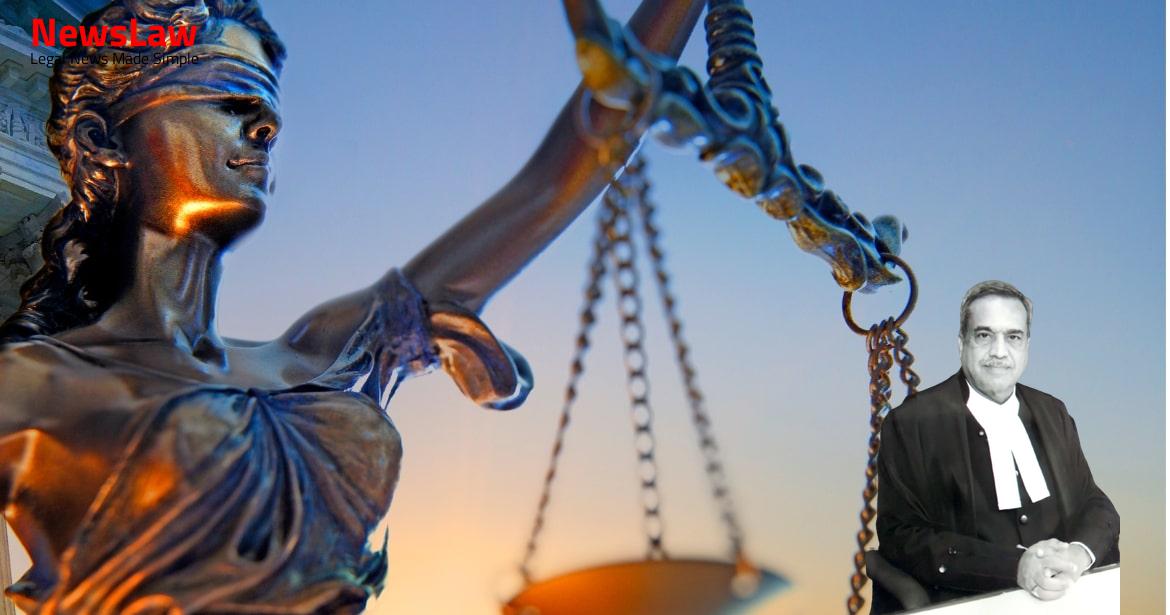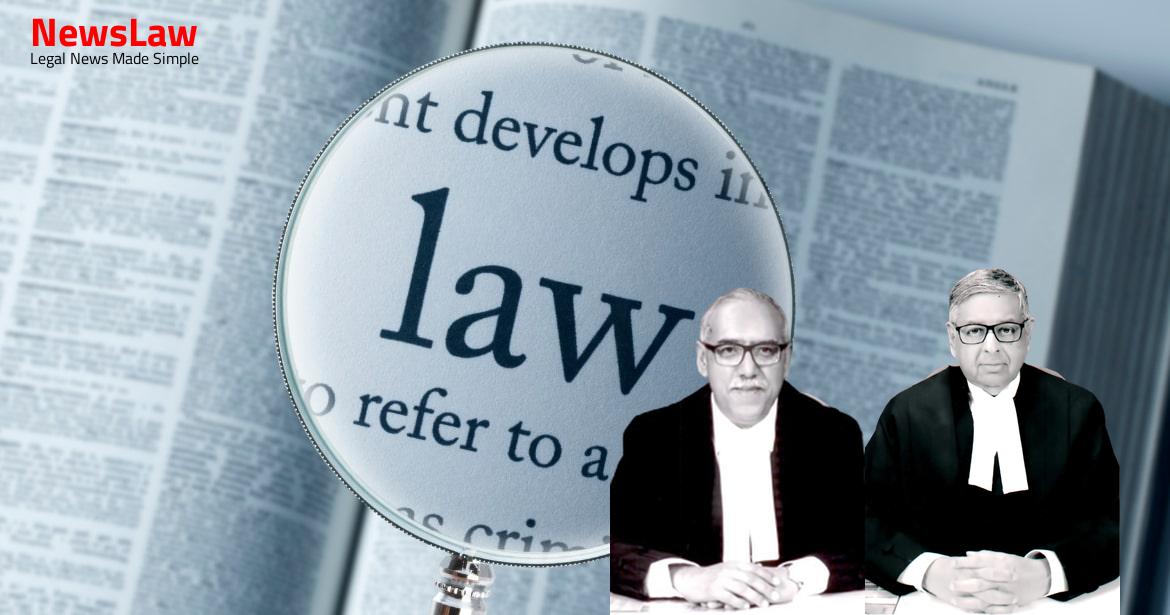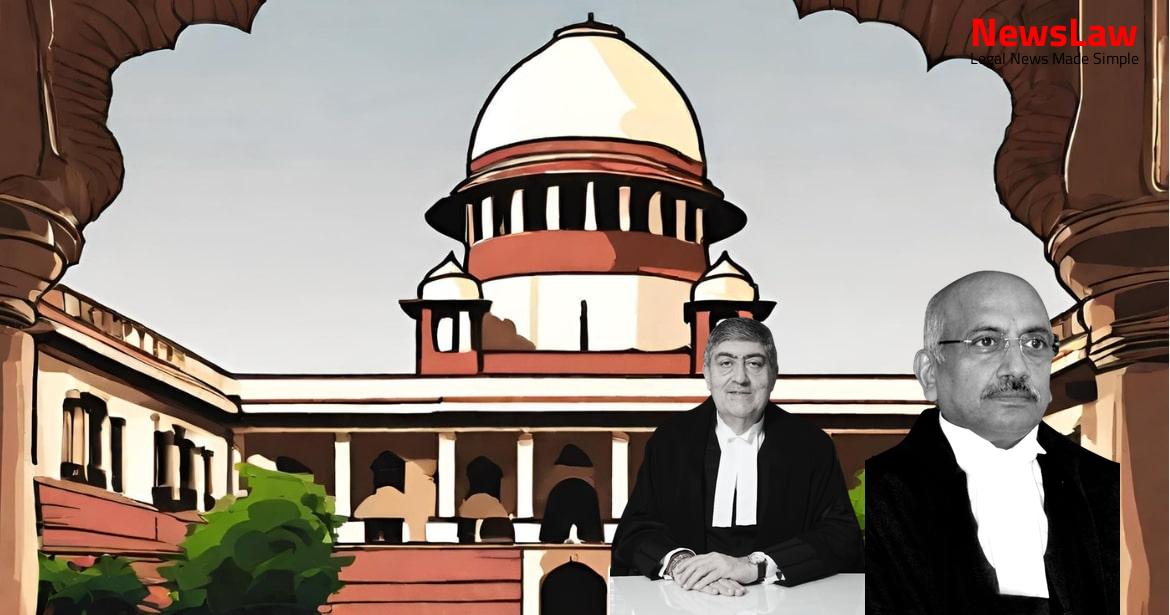In a recent legal case, the court delved into the complexities of dealing with fraud in legal proceedings, emphasizing the significance of approaching the courts with clean hands. The analysis focused on the implications of suppression of material facts, highlighting the consequences of fraudulent behavior and the need for truthfulness in litigation. Stay tuned for a detailed breakdown of how the court tackled these critical issues to ensure fairness and integrity in the legal system.
Facts
- The plaintiff initially filed a suit for declaration against the appellant-defendant on 10 February 1994.
- The appellant-defendant denied the existence and/or execution of any agreement to sell in the written statement.
- The plaintiff filed a replication on 14 November 1994, stating that the first suit was filed to avoid payment of stamp duty and registration charges.
- The trial court dismissed the suit for specific performance on 6 August 1997.
- The land owners submitted an application for denotification of the land which was also dismissed.
- Another writ petition questioning the rejection of the representation was filed by the land owners.
- The suit was dismissed as withdrawn on 7 May 1994, leading to the filing of the present suit on 2 June 1994 seeking specific performance based on an alleged agreement to sell dated 10 January 1993.
- The respondents, as the legal representatives of the plaintiff, filed an appeal before the Appellate Court.
- The Appellate Court allowed the appeal and decreed the suit for specific performance of the agreement to sell.
- The appellant-defendant appealed to the High Court against the decision.
- The High Court dismissed the appeal in January 2009.
- The appellant-defendant has now approached this Court for further appeal.
- Arguments were heard from both parties’ counsels.
Also Read: Presumption of Genuine Endorsements in Cheque Case
Issue
- The main issue in this case is whether the defendant is obligated to sell the suit land to the plaintiff as per the agreement executed on 10.1.1994.
- The plaintiff claims that the defendant agreed to sell the land for Rs. 6,50,000 and received Rs. 50,000 as earnest money.
- The plaintiff alleges that the remaining amount was to be paid at the time of sale deed before the Sub-Registrar.
- It needs to be determined whether the defendant’s actions fulfill the terms of the agreement and whether the plaintiff is entitled to specific performance of the contract.
Also Read: Medical Negligence and Compensation: A Landmark Decision
Arguments
- The appellant-defendant argued that the plaintiff did not mention the earlier suit in his evidence.
- The respondents-plaintiffs’ counsel stated that all courts confirmed the validity of the agreement to sell dated 10 January 1993.
- The appellant-defendant claimed to be a parda-nasheen lady with blind trust in the plaintiff, who was her cousin.
- An application for partition was filed by the appellant-defendant on 4 July 1994.
- Shri Luthra, citing court judgments, argued that the respondents-plaintiffs’ suppression of facts amounted to fraud, disentitling them from relief.
- The witnesses closely associated with the plaintiff were deemed untrustworthy, as they were biased.
- The appellant-defendant failed to prove that the agreement to sell was a result of fraud or misrepresentation according to trial and appellate courts.
- The trial court’s decision to non-suit the respondents-plaintiffs was criticized for being based on a technicality.
- Concealment or non-disclosure of relevant facts without intent to deceive or proof of fraud with intent to deceive would not render a decree obtained by a party as fraudulent.
- The statement in paragraph (15) of the plaint pertains to litigation with respect to the agreement in question.
- The trial court erred in dismissing the suit as the respondents-plaintiffs had sufficiently proven the circumstances in which the earlier suit was filed.
- The earlier suit for declaration was based on a settlement deed, while the second suit was filed based on an agreement to sell.
- The trial court found that the plaintiff failed to establish fraud, and the Appellate Court rightly allowed the appeal.
- Fraud has to be proved beyond reasonable doubt, as seen in the case of Union of India v. M/s Chaturbhai M. Patel and Co.
- The cause of action accrued to the plaintiff against the defendant when the latter refused to correct the name of the plaintiff in the revenue record.
Also Read: Remand of Writ Petition for Restoration and Decision on Merits
Analysis
- The trial court found that the plaintiff attempted to defraud the State of revenue by non-production and non-mentioning of the release deed during the trial.
- The plaintiff filed a suit for specific performance within a month, prior to the suit for declaration, without disclosing all relevant facts.
- The High Court failed to consider crucial facts and evidence, showing total non-application of mind.
- The explanation submitted by the plaintiff regarding the earlier suit hinted at dishonest intentions.
- The plaintiff’s relation to the defendant was questioned, and the importance of material facts in litigation was emphasized.
- Repeated attempts by Respondent 4 to challenge orders and denotify land were seen as an abuse of process and a form of fraud.
- The courts emphasized the requirement for parties to approach with clean hands and not to abuse the legal process.
- The issuance of notifications by the BDA and the possession of the property were key factors in the judgment.
- The judgment highlighted the need for truth and transparency in approaching the court and the consequences of fraudulent behavior.
- The issue of suppression of material facts and the implications thereof were reiterated throughout the analysis.
- Fraud in legal proceedings involves gaining unfairly at the expense of another party.
- A court judgment obtained through fraud is considered null and void in the eyes of the law.
- The court must be approached with clean hands, and judgments obtained through deceit are not allowed to stand.
- Suppression of earlier legal proceedings can impact the validity of a judgment.
- Trickery or misleading the court to gain an advantage is not permissible.
- Simultaneously filing multiple suits and later withdrawing them without proper grounds can be viewed as an attempt to manipulate the legal system.
- Finality of litigation should not be abused to perpetrate fraud or dishonesty in legal proceedings.
- Fraud is defined as deliberate deception to unfairly benefit at the expense of another.
- Courts have a duty to prevent fraud in legal proceedings to maintain the integrity of the system.
- A judgment or order obtained by fraud is not considered valid in law and can be challenged at any time.
- The distinction between mistake and trickery in legal proceedings is essential to uphold justice and fairness.
- High Court judgment passed without application of mind
- High Court based its decision on incorrect premise regarding trial court decree and appellate court dismissal
- Appellate Court erred in reversing the well-reasoned judgment and decree of the trial court
Decision
- The appeal is allowed.
- The judgment and decree dated 26 July 2007 passed by the Appellate Court and the judgment passed by the High Court dated 28 January 2009 are quashed.
- The judgment and decree dated 6 August 1997 passed by the trial court dismissing the suit of the respondents-plaintiffs is upheld.
- No order as to costs.
Case Title: YASHODA (ALIAS SODHAN) Vs. SUKHWINDER SINGH. (2022 INSC 946)
Case Number: C.A. No.-008247-008247 / 2009



